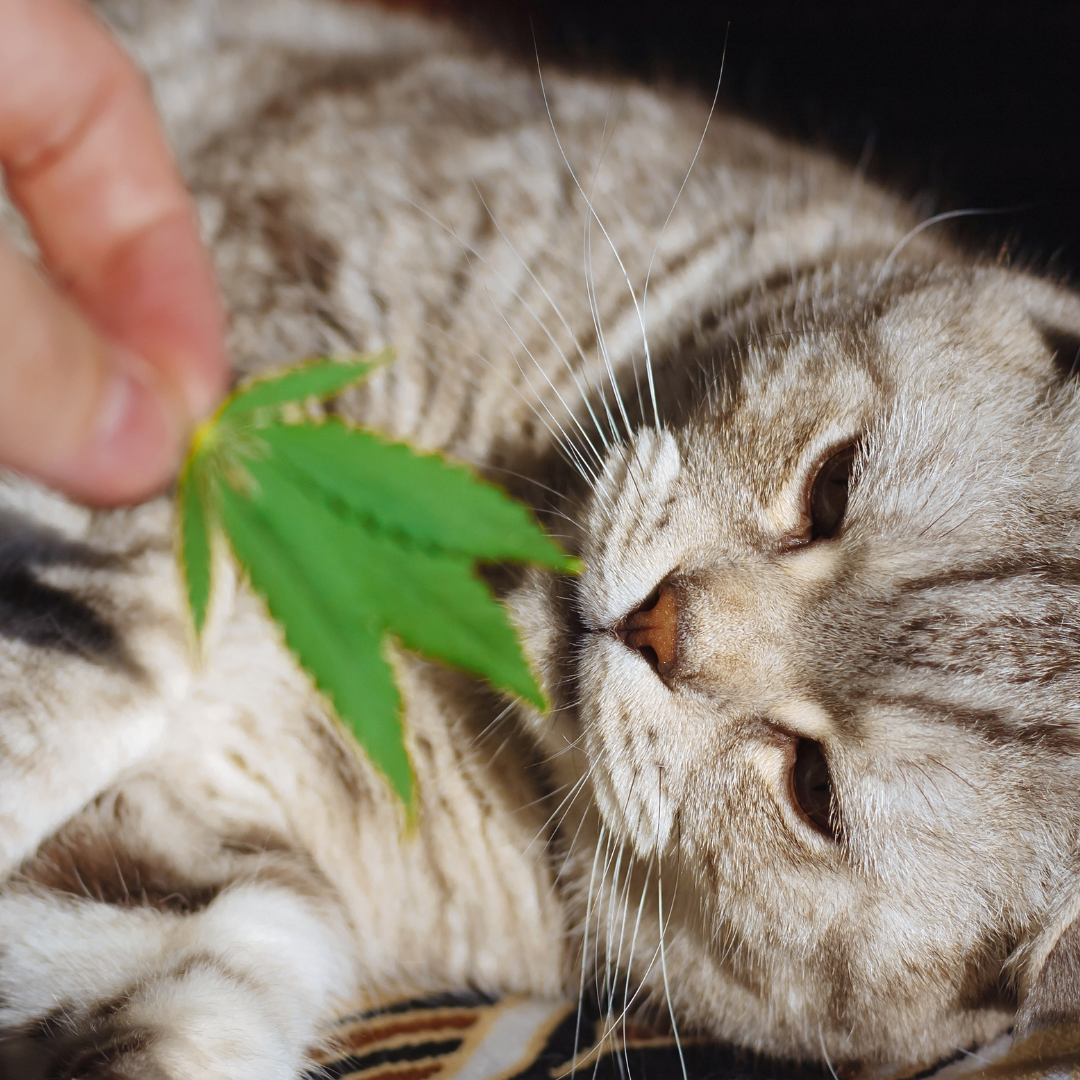What do we mean by CBD?
CBD is short for cannabidiol, one of the many compounds found in cannabis. Unlike THC, cannabidiol does not produce a high-although it has been shown to help relieve pain and reduce inflammation-and is widely available for both human and pet use. CBD is derived from hemp, and unlike marijuana, hemp does not contain enough THC to get you high. Hemp contains only microscopic amounts of THC (less than .3%).
But can pets use CBD?
Now that medical marijuana is legal in 29 states, legal cannabis products are getting a lot of attention, and a number of consumers are turning to cannabis products for relief from a wide range of ailments. Pets can use CBD but only in very small amounts. Different animals require different kinds of products. Dogs may love CBD chews. Cats, on the other hand, might be more suited to CBD drops (check here for more info) that contain Terpenes and Flavonoids. However, the best way to find out if CBD can help your pet is by talking to your vet first.
Is CBD psychoactive or non-psychoactive?
CBD (cannabidiol) is a standout, non-intoxicating compound derived from cannabis plants. Its scientific name is cannabidiol, and it’s one of more than 100 different cannabinoids (the mind-altering, CBD-free compound) that are found in the hemp plant. CBD is non-psychoactive, meaning it does not cause a high, and it is receiving a lot of attention for its possible health benefits for both humans and pets alike. However, while choosing a product, one needs to be wary of the level of THC or CBD in the desired product and should definitely be bought from a reputed online dispensary.
When can you give CBD to pets?
CBD oils and tinctures, like CBD oil for humans, are legal for purchase and consumption in all 50 states and much of the world. While CBD consumption is allowed for humans, many veterinarians warn against giving cannabinoids (including CBD) to dogs and cats. CBD for pets is controversial; while proponents swear by its efficacy, veterinarians warn that some cannabinoid products can be toxic to pets. Veterinary experts also warn that some cannabinoids are addictive and may cause pets to “self-administer” the drug.
What will happen to pets if they ingest CBD products?
It’s extremely important to make sure your pet doesn’t ingest too much, as CBD can interfere with your pet’s normal breathing.
How will CBD affect my pet’s behaviour?
CBD (cannabidiol) is a compound extracted from the cannabis plant. Unlike THC, which makes you feel high, CBD does not get you high. Research has shown CBD to have a wide range of positive effects on the body, which has led to its popularity for conditions such as anxiety, epilepsy, inflammation, and chronic pain. Recently, CBD has seen a surge in popularity in the pet industry. Pet owners are increasingly using it to treat their pets and ease the symptoms of emotional and physical problems.
Will CBD have an addictive effect on my pet?
The answer isn’t clear-cut. The Drug Enforcement Administration (DEA) has classified CBD as a Schedule I substance, meaning it has “no currently accepted medical use” and “no currently accepted safety for use under the conditions prescribed.” This classification has led many to question whether CBD is addictive.
Is it legal to use CBD on pets?
CBD is beneficial for pets because it boosts their immune system and reduces their anxiety. It is legal in 30 states, and many people and their pets have experimented with it.
How much should CBD be administered per body weight?
1–5 mg CBD for every 10 pounds of body weight.
A growing number of pet owners are turning to cannabis and CBD to treat their furry friends. The cannabinoids in the cannabis plant have been shown to have a range of positive effects on pets, from pain relief to overall wellness.




